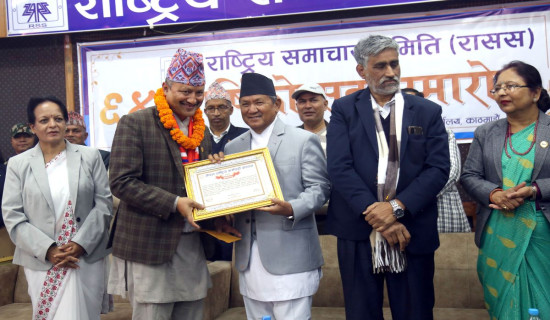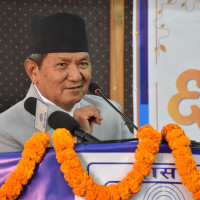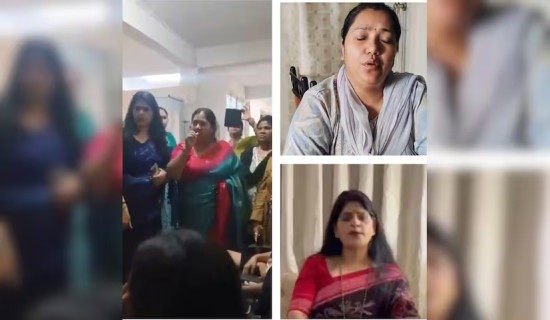- Thursday, 20 February 2025
Halesi Tuwachung prepares plan to advance energy access
By A Staff Reporter,Kathmandu, Feb. 16: Halesi Tuwachung Municipality has developed its first Municipal Energy Plan (MEP) to advance energy access.
This plan is designed to systematically guide the municipality in implementing energy measures over the next five years, sustainably meeting their increasing energy demands, informed Deutsche Gesellschaft für Internationale Zusammenarbeit (GIZ) Nepal – implementor of the project - in a press statement on Saturday.
The formal handover ceremony of the MEP took place at the Halesi Tuwachung Municipality office, where the Energy Development Sub-Committee (EDSC) of the municipality officially presented the plan to the Mayor, Bimala Rai.
The MEP was developed by the EDSC in close coordination with the local government and stakeholders, with technical support from the ‘Renewable Energy and Energy Efficiency - Green Recovery and Empowerment with Energy in Nepal (REEEP-GREEN)’ project, funded by the German Government and the European Union.
The plan includes more than 30 energy sector activities, with cost estimates derived from market assessments to ensure both feasibility and effectiveness, read the statement.
Speaking at the event, Mayor Rai highlighted several energy initiatives already undertaken by the municipality and underscored the importance of sustainable energy solutions for the community.
Executive Director of the AEPC, Nawa Raj Dhakal, reaffirmed the government's commitment to achieving 100 per cent electrification in the near future. He acknowledged that, although the estimated implementation cost of the plan is substantial, various activities could be implemented through investments from different government agencies, like AEPC, the Nepal Electricity Authority (NEA) and local consumers.
REEEP-GREEN also handed over detailed feasibility studies for two solar lift irrigation projects, designed to deliver sustainable agricultural solutions in the municipality.
Following the handover, the delegation visited several local enterprises that have already benefited from clean energy solutions supported by the municipality and the project. These included a dairy product shop, a bakery, and a leaf plate manufacturing enterprise, all of which have started or expanded operations using electric machines and equipment.
During the visit to the leaf plate enterprise, owned by a women’s cooperative, Dr. Geertrui Louwagie, Deputy Head of Cooperation at the European Union Delegation to Nepal, appreciated the cooperative’s efforts to reduce plastic waste and its role in fostering sustainable practices at the nearby sacred site of Halesi, and by its role, far beyond the municipality borders. She also highlighted the vital role of electricity in job creation and improved livelihoods, and encouraged the women to continue expanding the business development and market reach of their enterprise.
The REEEP-GREEN is a technical cooperation project co-funded by the Federal Republic of Germany (BMZ) and the European Union (EU). According to the statement, the project aims to enhance the planning and implementation conditions for renewable energy and energy efficiency measures in Nepal. It is implemented by GIZ and its partners, the Ministry of Energy, Water Resources, and Irrigation (MoEWRI) and AEPC.





-square-thumb.jpg)










